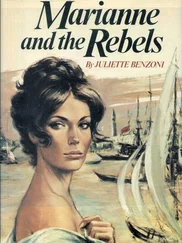The music had finished and the needle continued scraping at the still-turning record but no one paid attention to that. The actor took one more turn with his partner, then he too stopped still, leaning over a little to one side, then freezing like a statue depicting a figure caught in movement. They stood there, both of them, tipping to one side, unmoving in the glare of the lights, a tableau vivant, an allegorical embodiment of “The Dance,” clear and appropriate. The actor had one foot off the ground, his upper body strongly leaning the way the momentum of the dance had taken him. The statue slowly came to life, balancing itself by spreading its feet, moving its arms to raise and support Tibor whose head was cocked back as if he were looking up. The actor’s vast equine head fell forward, his mouth hovered over Tibor’s. Very slowly, as if having to overcome an invisible resistance, as if reluctantly and yet inevitably, the mouth moved with due care and regard to cover Tibor’s. The boy’s head fell back under the weight. Their lips were joined and did not part as the actor with one hand supported the head that had collapsed beneath his, the head powerless, the eyes closed.
Ábel and the one-armed one both leapt on them at once. Béla made a kind of barking noise and attacked the actor’s feet, using both his hands to try and topple the colossus, but the enormous body stood so firm on the great pillars of its legs that for a while they were incapable of shifting it. Ábel got hold of Tibor’s neck and pulled it back with such force that they both fell. They rolled over and over, ending up under the table and remaining there for a second tangled in each other without moving. Tibor was torn from the actor helpless and corpselike, as if released from a powerful magnetic force field, falling weightless, ejected from its ambit. Béla kept tugging at the actor’s legs like an angry dog, whining and grunting. The one-armed one let go of the actor, leapt forward, and smashed his fist into the back of his head. The figure slowly collapsed. It was like downing an enormous effigy.
Ernõ stood at the edge of the stage shielding his eyes with his hands, straining to look into the dark.
There’s someone out there, he cried.
They froze in their places. The one-armed one was the first to crawl slowly across the body of the fallen actor, joining Ernõ. The cobbler’s son leaned far out into the auditorium and pointed his trembling stick to a dark and distant box at top balcony level. There was someone sitting at the back of the box. Béla approached, his teeth chattering. Ernõ’s voice resounded in a high screech through the hall.
There’s someone out there! Look! And he’s been there for some time!
But no one was capable of moving. Out of the silence, in the impenetrable dark, at the back of the box, a chair toppled over and a door slammed shut.
THE COLONEL’S WIFE STOPPED BETWEEN THEtwo beds. She was carrying Tibor’s black uniform on her arm, and held the brilliantly polished black lace-up shoes in her hand. She came on tiptoe and, still on tiptoe, stopped on swollen, unsteady feet in the half-dark. The square window glimmered between the beds. She gave both beds a furious, feral glance, shifting her attention from one to the other and back.
Lajos lay propped high on his pillow, as stiff and unmoving as a corpse. His remaining hand rested on his chest, the sleeve of the missing arm hanging off the edge of the bed, his face calm, serious, smooth. Tibor lay slightly across his bed, one foot sticking out from beneath the covers, his hand gripping the bolster.
The colonel’s wife raised the clothes to her face with difficulty and took a good sniff. The boy’s smell was detectable through that of the broadcloth and the cheap perfume that had lingered round him on his return that night. So there it is, she thought. The boy has spent the night with some woman.
Incontrovertible proof, she thought. The boy has been with a woman, doing what all men do. That was the odor he brought back with him, on his body and his clothes, while she was stuck at home, waiting up in her bed, with her straggly hair let down over her skinny shoulders, in her nightgown, imagining the most terrible things, weeping and sobbing because she could just see him as a man, his angular head nestling between an unknown woman’s breasts, his groin rubbing against the woman’s groin, the woman who was robbing her of her motherhood, disputing her ownership of the family. That was what really mattered, what she should never forget: that she had been robbed. They are all thieves, she reflected with contempt. That’s how it was in her most agonizingly jealous years too: she was being robbed. This furtive miserliness that had held the family together, a family that was continually straining to break apart, whose members were always set on wandering off, always resented and coveted anything her menfolk took from the house, every farthing, each drop of blood. Everything here belonged to her because it was she who kept guard over the family, indeed was the family, an island in the greater world outside, an island on which they built houses and settled people—all of this was hers, everything that grew here grew out of her flesh and blood. But the men went straying after other women. They were robbing her, so she was jealous of every word the three men took with them when they left the house. They gave money to other women, fed them with endearments that were hers by right: their very movements, their blood and sweat, were offered up to them. One day they all deserted her, left the island, gave false, conniving excuses for their absence, citing the call of duty, the needs of the nation, the binding oaths they had made, and when they came back they were never the same again. One came back without an arm. She looked at the empty dangling sleeve. That arm was unquestionably hers: she had given birth to it. That was her flesh the boy had squandered somewhere. He said it was the war, but she knew these were just words, that men made war just to escape their homes, because they didn’t want to fulfill their obligations and earn a proper living.
The little one had slept with a woman last night. She leaned forward carefully and her eyes sought out her son’s mouth in the half-dark of the bolsters. The mouth was open, the lips swollen with blood. His father had just such a mouth. That’s how it goes, how it always goes, one is left alone on a sinking island.
She arranged the clothes on the chair. She knew she was nearing the end of her life, and was quite aware she had to die. It might be a year, it might be tomorrow. Her foot was swollen and dropsical. There were nights she couldn’t hear her own heart beat. She was accustomed to the thought of death and spoke of it as she might speak of a much-loved, intimate family occasion. She had no difficulty accepting the thought of death, she was only concerned that her sons would come in, call for the doctor and Mrs. Budenyik, the woman who washed corpses, and Mrs. Budenyik would strip her and wash her wasted body and swollen dead legs, those legs that had died before her sensations and reason did, with acidic water. She had no intention whatever of intruding upon Mrs. Budenyik and her business with the dead. Mrs. Budenyik had been a midwife once, and had seen her naked and more than naked when she gave birth to her sons. She was part of the family, first as an associate member of the great family of woman, secondly as a member of Colonel Prockauer’s family. She was the last to wash Granny and the first to wash little Tibor. It’s laughable, she thought, that Mrs. Budenyik should complete her work here, prepare her nice and clean for her final journey, wipe the death sweat off her with a cloth soaked in acidic water, not allowing the boys to remain in the room as she did so. The thought that tortured her was that the boys would be allowed to remain, maybe out of pity, or for lack of a firm hand, while Mrs. Budenyik washed her down. This fear never left her during the period of her illness while she lay helpless in bed. She knew why the boys should not look upon her naked body, alive or dead, it made no difference. She wore high-necked nightgowns that buttoned to the chin. The boys had never seen her while she was washing or lightly clad. She knew that if a look of theirs should burn a hole in the wall that had, for decades, divided her from them, everything would fall apart. The boys would only see the mother in her, and nothing but the mother, the guardian of the majority of the laws of behavior, as long as it never occurred to them to look upon her flesh, to notice that their mother was a woman too, someone her husband might take in his arms, into whose ear he might whisper endearments, a person whose body his fingers might explore. Whenever she thought of this on her sickbed she gave a groan. She must discuss the business with Mrs. Budenyik before it happened. Now that the youngest had taken leave of the house and spent the night with a strange woman she felt she could abandon her resistance, that her death was very close.
Читать дальше












